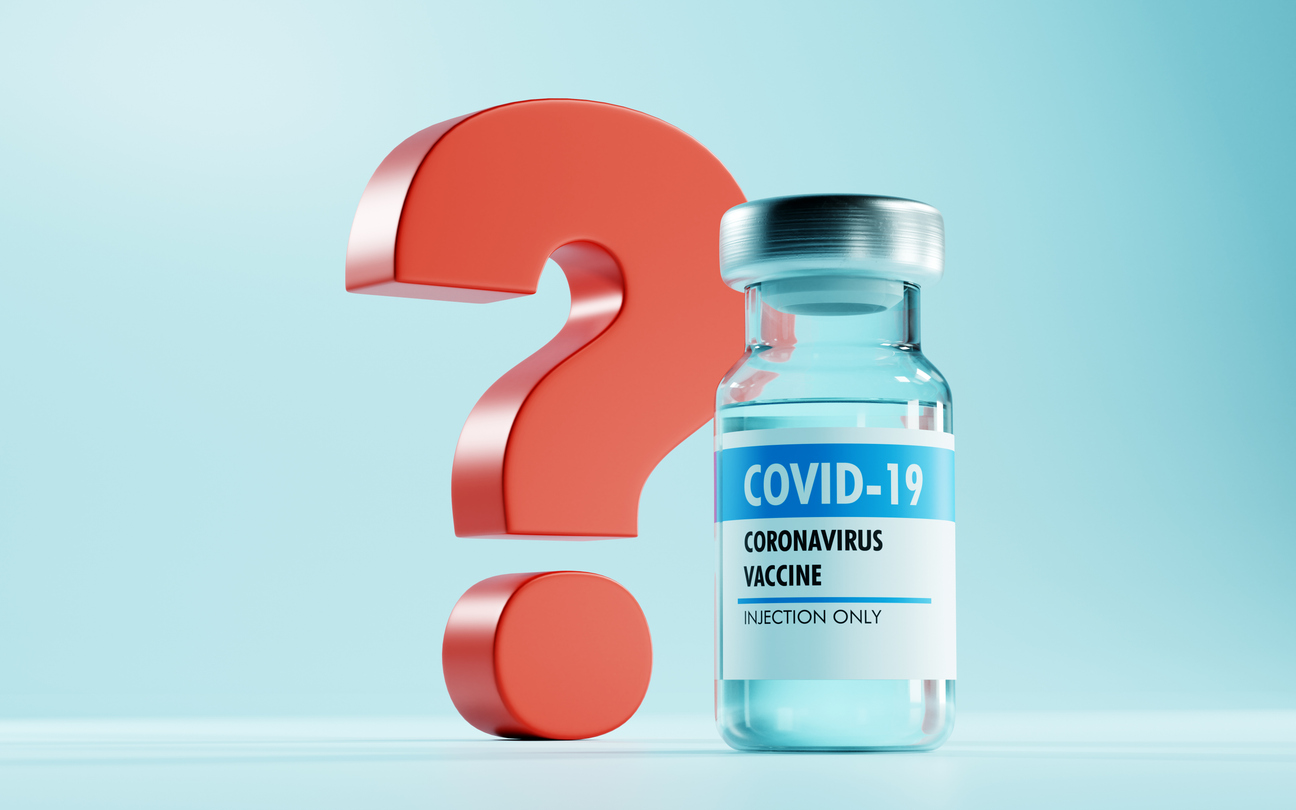2025-04-29
COVID vaccine and pregnancy: a successful bet?
Public Health and Social Medicine
#Pregnancy #COVID-19 #Vaccination
#VaccineSafety #SARS
Pregnant women are at increased risk of severe complications when infected with SARS-CoV-2. Infection can lead to adverse outcomes such as preterm birth, the need for intensive care hospitalization, and in the most severe cases, maternal or neonatal death. This vulnerability is due to immunological and physiological changes during pregnancy, which make pregnant women more susceptible to severe respiratory infections and their consequences.
Despite this reality, vaccination coverage among pregnant women remains insufficient worldwide. This gap is mainly explained by the initial lack of data regarding the safety and efficacy of COVID-19 vaccines in pregnant women. Clinical trials conducted during vaccine development systematically excluded this population, generating uncertainty and hesitation among both patients and healthcare professionals. This data gap delayed the establishment of clear recommendations and hindered trust in vaccination, even though the risks of complications remained high.
In this context, this research focuses on studying the safety and efficacy of COVID-19 vaccines administered during pregnancy, aiming to provide updated, evidence-based answers to better guide recommendations, reassure pregnant women, and improve their level of protection against COVID-19.
To achieve this, 177 studies involving over 630,000 pregnant women from 41 countries were selected and analyzed. All recognized vaccine types (mRNA, viral vector, inactivated virus) were included.
The findings show that COVID-19 vaccination during pregnancy does not increase the risk of maternal or neonatal adverse events (such as miscarriage, gestational diabetes, hypertension, congenital anomalies, or prematurity). On the contrary, a reduction in the risk of stillbirth (up to –75% with mRNA or viral vector vaccines) and emergency cesarean deliveries was observed.
Regarding vaccine safety, reported side effects are mostly local (injection site pain) or mild (fatigue, headache), with their frequency being similar to or even lower in pregnant women compared to the general population. Severe adverse events remain rare.
In terms of efficacy, mRNA vaccination during pregnancy significantly reduces the risk of symptomatic COVID-19, severe forms, or hospitalization in the mother (with efficacy ranging from 72% to 82%). Protection is also partially transferred to the newborn. A decrease in hospitalizations for COVID-19 within the first six months of life has indeed been observed. Overall efficacy is lower for non-mRNA vaccines and during periods dominated by the Omicron variant, but the benefit remains noteworthy.
COVID-19 exposes pregnant women to a high risk of severe complications, affecting both the mother and the newborn. Despite the severity of the issue, vaccination during pregnancy remains underutilized, partly due to the initial lack of specific data, the emergence of new variants, and persistent hesitations regarding vaccine safety in this population.
The aim of this review was to provide an updated evaluation of the effectiveness and safety of COVID-19 vaccines administered during pregnancy, in order to inform clinical practices and strengthen the prevention of severe cases.
The results confirm that vaccination effectively protects pregnant women against severe COVID-19 and reduces the risk of complications in newborns, without increasing obstetric or neonatal adverse events. The protective effect is particularly pronounced against the Alpha and Delta variants.
However, the generalization of these results is limited by the predominance of observational studies, protocol heterogeneity, the lack of randomized trials, and the underrepresentation of low-resource countries or non-mRNA vaccines. The reduced efficacy observed with the Omicron variant also highlights the importance of booster vaccinations and prolonged follow-up.
It is therefore crucial to continue research, expand studies to diverse contexts, and continually update recommendations to ensure the best possible protection for pregnant women. Optimizing vaccination prevention during pregnancy must remain a priority to reduce maternal and neonatal mortality and to offer mothers and their children the best chances of safely navigating the pandemic.
Pregnant women are at increased risk of severe complications when infected with SARS-CoV-2. Infection can lead to adverse outcomes such as preterm birth, the need for intensive care hospitalization, and in the most severe cases, maternal or neonatal death. This vulnerability is due to immunological and physiological changes during pregnancy, which make pregnant women more susceptible to severe respiratory infections and their consequences.
Despite this reality, vaccination coverage among pregnant women remains insufficient worldwide. This gap is mainly explained by the initial lack of data regarding the safety and efficacy of COVID-19 vaccines in pregnant women. Clinical trials conducted during vaccine development systematically excluded this population, generating uncertainty and hesitation among both patients and healthcare professionals. This data gap delayed the establishment of clear recommendations and hindered trust in vaccination, even though the risks of complications remained high.
In this context, this research focuses on studying the safety and efficacy of COVID-19 vaccines administered during pregnancy, aiming to provide updated, evidence-based answers to better guide recommendations, reassure pregnant women, and improve their level of protection against COVID-19.
Vaccinated mother, protected baby?
To achieve this, 177 studies involving over 630,000 pregnant women from 41 countries were selected and analyzed. All recognized vaccine types (mRNA, viral vector, inactivated virus) were included.
The findings show that COVID-19 vaccination during pregnancy does not increase the risk of maternal or neonatal adverse events (such as miscarriage, gestational diabetes, hypertension, congenital anomalies, or prematurity). On the contrary, a reduction in the risk of stillbirth (up to –75% with mRNA or viral vector vaccines) and emergency cesarean deliveries was observed.
Regarding vaccine safety, reported side effects are mostly local (injection site pain) or mild (fatigue, headache), with their frequency being similar to or even lower in pregnant women compared to the general population. Severe adverse events remain rare.
In terms of efficacy, mRNA vaccination during pregnancy significantly reduces the risk of symptomatic COVID-19, severe forms, or hospitalization in the mother (with efficacy ranging from 72% to 82%). Protection is also partially transferred to the newborn. A decrease in hospitalizations for COVID-19 within the first six months of life has indeed been observed. Overall efficacy is lower for non-mRNA vaccines and during periods dominated by the Omicron variant, but the benefit remains noteworthy.
Vaccinated mothers, risks averted!
COVID-19 exposes pregnant women to a high risk of severe complications, affecting both the mother and the newborn. Despite the severity of the issue, vaccination during pregnancy remains underutilized, partly due to the initial lack of specific data, the emergence of new variants, and persistent hesitations regarding vaccine safety in this population.
The aim of this review was to provide an updated evaluation of the effectiveness and safety of COVID-19 vaccines administered during pregnancy, in order to inform clinical practices and strengthen the prevention of severe cases.
The results confirm that vaccination effectively protects pregnant women against severe COVID-19 and reduces the risk of complications in newborns, without increasing obstetric or neonatal adverse events. The protective effect is particularly pronounced against the Alpha and Delta variants.
However, the generalization of these results is limited by the predominance of observational studies, protocol heterogeneity, the lack of randomized trials, and the underrepresentation of low-resource countries or non-mRNA vaccines. The reduced efficacy observed with the Omicron variant also highlights the importance of booster vaccinations and prolonged follow-up.
It is therefore crucial to continue research, expand studies to diverse contexts, and continually update recommendations to ensure the best possible protection for pregnant women. Optimizing vaccination prevention during pregnancy must remain a priority to reduce maternal and neonatal mortality and to offer mothers and their children the best chances of safely navigating the pandemic.
Read next: Pregnancy under surveillance: infections—who really protects?

Last press reviews
COVID vaccine and pregnancy: a successful bet?

#Pregnancy #COVID-19 #Vaccination #VaccineSafety #SARS ...
Pregnancy under surveillance: infections—who really protects?

#Infection #Pregnancy #Immunization #Immunity #Vaccination ...
